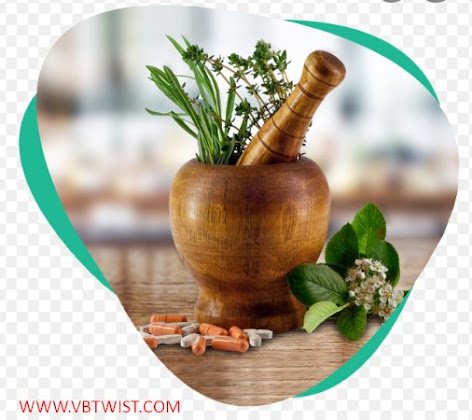Home remedies, deeply rooted in India’s rich tradition of Ayurveda and natural healing, offer effective, affordable, and accessible solutions for common ailments. From soothing a sore throat to managing indigestion, these time-tested remedies use everyday ingredients like turmeric, honey, and ginger. This blog post explores safe and proven home remedies for common health issues in India, along with precautions and tips to ensure effective use in 2025.
Why Choose Home Remedies?
Home remedies are popular in India due to their:
- Accessibility: Use readily available kitchen ingredients like spices, herbs, and oils.
- Cost-Effectiveness: Affordable alternatives to over-the-counter medications.
- Cultural Relevance: Rooted in Ayurveda and traditional practices, trusted for generations.
- Minimal Side Effects: Natural ingredients are generally safe when used correctly.
However, home remedies are best for mild ailments. For persistent or severe symptoms, consult a healthcare professional to avoid complications.
Effective Home Remedies for Common Ailments
Here are some of the best home remedies for common health issues, tailored for Indian households:
1. Cold and Cough
- Honey and Ginger Tea:
- Ingredients: 1 tsp grated ginger, 1 tsp honey, 1 cup hot water.
- Method: Boil ginger in water for 5 minutes, strain, and add honey. Drink twice daily.
- Benefits: Ginger’s anti-inflammatory properties soothe throat irritation, while honey’s antimicrobial effects combat infections.
- Tulsi (Holy Basil) Decoction:
- Ingredients: 10–15 tulsi leaves, 1 cup water, pinch of black pepper.
- Method: Boil tulsi leaves with water, add pepper, and sip warm. Consume 1–2 times daily.
- Benefits: Tulsi boosts immunity and clears respiratory congestion.
Precaution: Avoid honey for children under 1 year due to botulism risk.
ઉધરસ-ખાંસી માટેના આયુર્વેદ ના ઉપચાર
આધાશીશી-માથાના દુઃખાવાના ઉપચાર
કાનનાં રોગો અને આયુર્વેદ વિશેની માહિતી
ડાયાબિટીસના ઇલાજ માટે 10 ઘરેલુ ઉપાયો
2. Indigestion and Bloating
- Ajwain (Carom Seeds) Water:
- Ingredients: 1 tsp ajwain seeds, 1 cup water.
- Method: Boil ajwain seeds in water for 10 minutes, strain, and drink warm after meals.
- Benefits: Ajwain aids digestion and relieves gas and bloating.
- Buttermilk with Cumin:
- Ingredients: 1 cup buttermilk, ½ tsp roasted cumin powder, pinch of rock salt.
- Method: Mix ingredients and drink post-meal.
- Benefits: Probiotics in buttermilk improve gut health, while cumin reduces acidity.
Precaution: Avoid if you’re lactose intolerant; opt for ajwain water instead.
3. Sore Throat
- Turmeric Milk:
- Ingredients: 1 cup milk, ½ tsp turmeric powder, pinch of black pepper.
- Method: Warm milk, add turmeric and pepper, and drink before bed.
- Benefits: Turmeric’s curcumin has anti-inflammatory and antibacterial properties, enhanced by pepper.
- Saltwater Gargle:
- Ingredients: 1 tsp salt, 1 glass warm water.
- Method: Dissolve salt in water and gargle 2–3 times daily.
- Benefits: Reduces throat inflammation and clears mucus.
Precaution: Don’t swallow saltwater; spit it out to avoid excess sodium intake.
4. Headache
- Peppermint Oil Massage:
- Ingredients: 2–3 drops peppermint essential oil, 1 tsp coconut oil.
- Method: Mix oils and gently massage temples and forehead for 5–10 minutes.
- Benefits: Peppermint’s menthol cools and relaxes muscles, easing tension headaches.
- Ginger Tea:
- Ingredients: 1 tsp grated ginger, 1 cup water, 1 tsp honey (optional).
- Method: Boil ginger in water, strain, add honey, and sip slowly.
- Benefits: Ginger reduces inflammation and improves blood flow, relieving headaches.
Precaution: Dilute peppermint oil to avoid skin irritation; test on a small area first.
5. Skin Irritation and Acne
- Aloe Vera Gel:
- Ingredients: Fresh aloe vera leaf or pure aloe gel.
- Method: Apply fresh aloe gel to affected areas, leave for 20 minutes, and rinse. Use daily.
- Benefits: Aloe’s anti-inflammatory and antibacterial properties soothe acne and irritation.
- Neem Paste:
- Ingredients: 10–12 neem leaves, water to make a paste.
- Method: Grind neem leaves with water, apply to skin, leave for 15 minutes, and rinse.
- Benefits: Neem’s antimicrobial properties help treat acne and rashes.
Precaution: Perform a patch test to check for allergies, especially with neem.
6. Constipation
- Triphala Powder:
- Ingredients: 1 tsp Triphala powder, 1 glass warm water.
- Method: Mix Triphala in water and drink before bed.
- Benefits: Triphala, an Ayurvedic blend, promotes bowel movement and detoxifies the gut.
- Soaked Raisins:
- Ingredients: 8–10 raisins, water.
- Method: Soak raisins overnight, eat them in the morning, and drink the water.
- Benefits: High fiber content aids digestion and softens stools.
Precaution: Consult a doctor if constipation persists beyond 3 days.
7. Minor Cuts and Wounds
- Turmeric Paste:
- Ingredients: ½ tsp turmeric powder, 1 tsp water or honey.
- Method: Mix into a paste, apply to the cleaned wound, and cover with a bandage. Reapply daily.
- Benefits: Turmeric’s antiseptic properties prevent infection and promote healing.
- Coconut Oil:
- Ingredients: Pure coconut oil.
- Method: Apply a thin layer to the wound after cleaning. Use 2–3 times daily.
- Benefits: Coconut oil moisturizes and has mild antimicrobial effects.
Precaution: Clean the wound thoroughly with water or antiseptic before applying remedies.
Tips for Using Home Remedies Safely
- Source Quality Ingredients: Use fresh, organic ingredients like turmeric, ginger, or honey to ensure potency and safety.
- Moderation is Key: Overuse (e.g., excessive turmeric or neem) can cause side effects like stomach upset or skin irritation.
- Check for Allergies: Test remedies on a small skin patch or consume a small amount to rule out allergic reactions.
- Consult a Doctor: For chronic conditions, pregnancy, or children, seek medical advice before relying on home remedies.
- Hygiene Matters: Wash hands, utensils, and ingredients to avoid contamination, especially for wound treatments.
When to Seek Professional Help
Home remedies are effective for mild symptoms but not for:
- Symptoms lasting over 3–5 days.
- Severe pain, fever, or swelling.
- Chronic conditions like diabetes or hypertension, which require medical management.
- Allergic reactions (rashes, breathing difficulty) after using a remedy.
Always consult a doctor for accurate diagnosis and treatment in such cases.
Why Home Remedies Remain Relevant in 2025
In India, home remedies are more than just quick fixes; they’re a blend of tradition and science. With rising healthcare costs and a growing interest in natural wellness, remedies like turmeric milk or tulsi tea are gaining popularity, even among urban households. Social media platforms like X highlight trends where users share recipes for neem face masks or ajwain water, reflecting their continued relevance. However, always verify remedies shared online with trusted sources like Ayurvedic texts or healthcare professionals.
Conclusion
Home remedies offer a natural, cost-effective way to manage common ailments like colds, indigestion, headaches, and minor skin issues. Ingredients like turmeric, ginger, tulsi, and aloe vera, staples in Indian kitchens, provide accessible relief when used correctly. By combining these remedies with caution, hygiene, and timely medical consultation, you can embrace the healing power of nature in 2025. For more tips, explore Ayurvedic resources or consult a local vaidya (Ayurvedic practitioner) to personalize remedies for your needs. Stay healthy, naturally!


